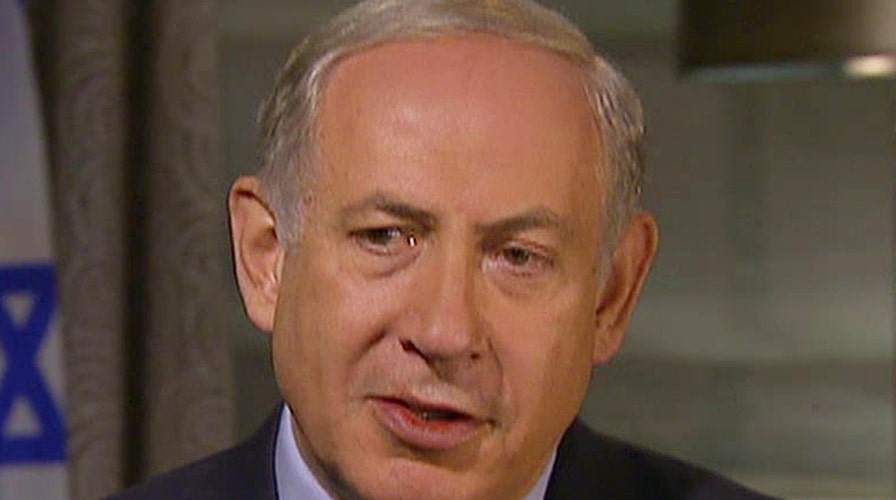BERLIN – Israel’s Prime Minister Benjamin Netanyahu sparked a long-overdue debate about the role of Haj Amin al-Husseini—the mufti of Jerusalem from 1921 to 1937—in carrying out the Holocaust. What German Chancellor Angela Merkel and the Obama administration failed to internalize is the low public awareness of the mufti as a key Nazi-ally in the Muslim world.
Responding to daily Palestinian terrorist attacks, Netanyahu cited Husseini to show lethal Palestinian anti-Semitism existed before the founding of the State of Israel in 1948. Husseini barred the entry of 4,000 Jewish children to Palestine in 1943. He managed to escape prosecution as a war criminal at the Nuremburg trials of Nazis.
Netanyahu said: “He [Husseini] flew to Berlin. Hitler didn’t want to exterminate the Jews at the time; he wanted to expel the Jews. And Haj Amin al-Husseini went to Hitler and said, ‘If you expel them, they’ll all come here.’ ‘So what should I do with them?’ he [Hitler] asked. He [Husseini] said, ‘Burn them.’”
Netanyahu subsequently clarified his remarks: “I had no intention to absolve Hitler of responsibility for his diabolical destruction of European Jewry. Hitler was responsible for the Final Solution to exterminate six million Jews. He made the decision. It is equally absurd to ignore the role played by the mufti, Haj Amin al-Husseini, a war criminal, for encouraging and urging Hitler.”
Instead of using the mufti hullabaloo as a teaching moment, the White House press secretary said, “The inflammatory rhetoric needs to stop.”
Merkel’s spokesman airbrushed the mufti’s role: “All Germans know the history of the murderous race mania of the Nazis that led to the break with civilization that was the Holocaust. This is taught in German schools for good reason; it must never be forgotten…”
While German politicians and media expressed outrage over Netanyahu’s statements, less than two weeks ago Foreign Minister Frank-Walter Steinmeier met with a motley crew of Holocaust deniers and genocidal anti-Semites in Tehran.
A photograph shows Steinmeier euphorically embracing former Iranian President Ali Akbar Hashemi Rafsanjani, who has discussed dropping a nuclear bomb on Tel Aviv. An Argentinean indictment implicated Rafsanjani in the 1994 bombing of the Buenos Aires Jewish community center that killed 85 people and injured hundreds.
Steinmeier also met with Ali Larijani, the speaker of Iran’s faux parliament, who denied the Holocaust at the Munich Security conference in 2009. Steinmeier issued no public criticism of Rafsanjani and Larijani’s murderous anti-Semitism. The visit was largely non-controversial in Germany.
In an earlier example of German insensitivity on this issue, in 2009, the Multicultural Center in Berlin attempted to remove educational panels on the mufti from an exhibit on “The Third World during the Second World War.”
Jeffrey Herf, a leading scholar on the Holocaust, wrote on his Times of Israel blog on October 22: “Husseini absolutely wanted to exterminate the Jews, above all, the Jews of pre-state Palestine, and then the Jews of Israel.”
Sadly, German publishers have refused to translate Herf’s groundbreaking 2009 work, “The Jewish Enemy: Nazi Propaganda during World War II and the Holocaust,” which devotes considerable attention to the mufti, into German.
Last month, Austria’s President Heinz Fischer became the first Western head of state in more than a decade to meet Iran’s Supreme Leader Ali Khamenei. Fischer chose not to weigh in on Khamenei’s denial of the Holocaust and frequent calls to obliterate the Jewish state.
All of this helps to show that Netanyahu has contributed to an important discussion about the links between Islamic-animated anti-Semitism and Palestinian terrorism.
Published
|
Updated

